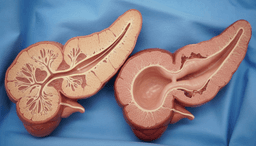Home / Health / Novartis Unveils GanLum, a Next-Gen Anti-Malaria Drug Offering Hope Against Resistance
Novartis Unveils GanLum, a Next-Gen Anti-Malaria Drug Offering Hope Against Resistance
13 Nov, 2025
Summary
- Novartis' experimental drug GanLum shows over 97% cure rate in African trials
- Researchers test single-dose malaria treatment combining 4 drugs for easier compliance
- Experts warn of growing parasite resistance, call for action as funding declines
In a significant development in the fight against malaria, researchers have reported two promising new approaches to counter the growing resistance to existing medications. Novartis, a Swiss-based pharmaceutical company, has released results of a study on its experimental drug, GanLum, which it calls a "next-generation treatment."
The study, conducted across 12 African countries, found that GanLum, a combination of a new drug called ganaplacide and an existing long-acting medication, lumefantrine, has a cure rate of better than 97%. This is slightly higher than the common artemisinin-based treatments currently used. Importantly, GanLum also proved highly effective against mutant malaria parasites that have developed partial resistance to existing drugs.
Separately, another team of researchers reported that a single-dose treatment combining four widely available malaria drugs was found to be an effective cure in a West African experiment. This approach aims to address the challenge of patients failing to complete the standard three-day treatment course, which can contribute to the development of drug resistance.
However, experts warn that the battle against malaria is far from over. Dr. David Sullivan, a malaria expert at Johns Hopkins University, stated that the parasite causing the disease is developing resistance to existing drugs, and the situation is becoming increasingly concerning. Furthermore, funding from the United States and other sources is being cut, which could impact the ability to monitor drug resistance and make prevention and treatments available to those in need.
As the medical community continues to search for new solutions, the introduction of GanLum and the promising single-dose therapy offer hope in the ongoing fight against this deadly disease.




